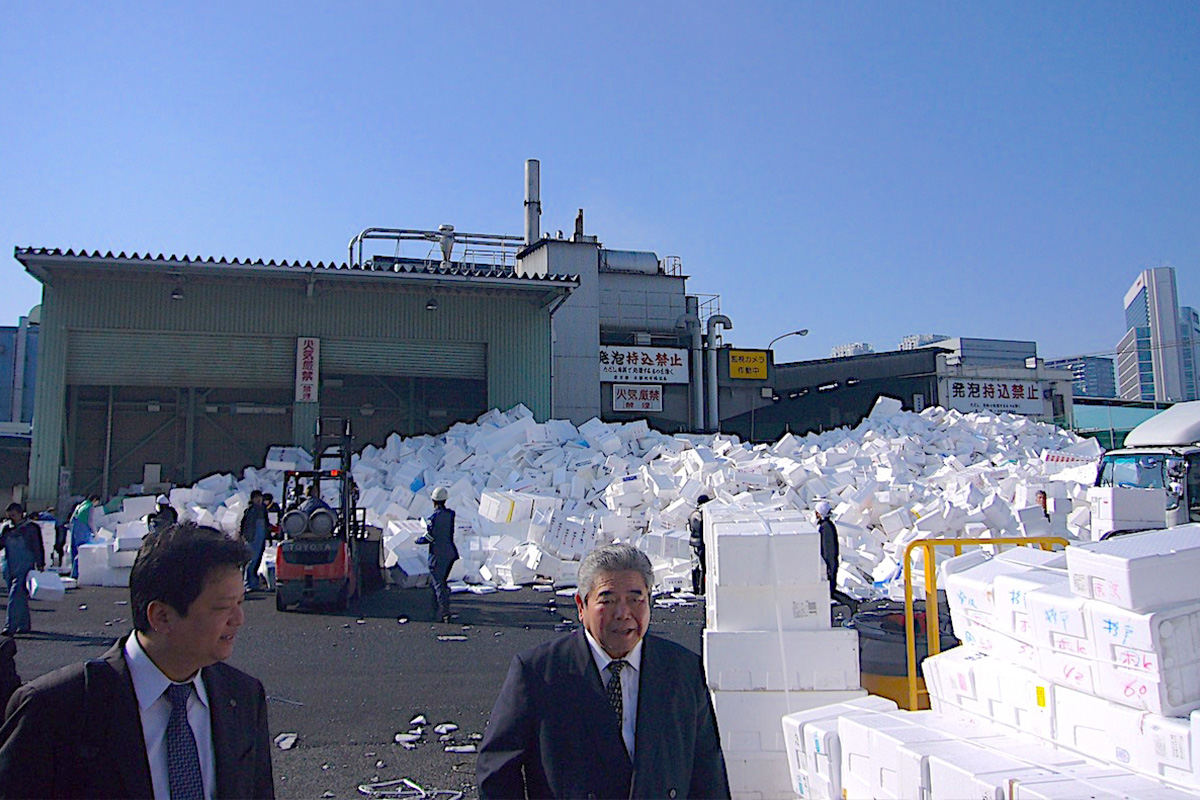

With 2,000 clients and counting, plastic recycling company Pana Chemical is looking to develop its overseas sales channels for its J-EPS ingots and high-quality resource plastics.

Having started life as a distributor associated with Matsushita Denko (now Panasonic), Pana Chemical switched its focus to plastic recycling in the 1970s following a chance discovery at the Tsukiji Market.
Current president, Kentaro Inukai, picks up the thread: “While exploring Tsukiji Market, my father observed an area emitting black smoke into the air. Plastic, he surmised, was being burned. Recognizing an opportunity, he developed machinery employing a low-grade heat exchange mechanism capable of melting styrofoam and transforming it into byproducts.”
This, as Mr. Inukai explains, was at a time when the concept of recycling had yet to take root. “Our motivation,” he confirms, “was to devise a practical solution to combat air and industrial pollution, rooted in a sustainable and profitable business model with solid revenues and sales.”
Today, the company collects on average 3,000 metric tons of EPS ingots monthly, meaning it commands an impressive 80% domestic market share in the sector.
With no aspirations to become a corporate giant, however, collaboration both at home and overseas is key.
As well as boasting some 2,000 clients, the company has also established partnerships with more than 50 recycling collaborators globally.
Not only that, the relationship enjoyed by these parties is unique. Mr. Inukai again: “We sell machines to our partners initially, after which we become clients by purchasing the byproducts from them, a mutually beneficial state of affairs which has endured for generations, with certain overseas partnerships spanning over 40 years.”
If the company excels in resource plastic recycling, one of Pana Chemical’s core responsibilities remains to promote the J-EPS Recycling System, a business model originating in Japan that revolves around the mechanical breakdown of styrofoam into ingots.
These by-products, as Mr. Inukai explains, can be used to create high-quality raw materials for use on large-scale productions: “Our approach, which involves compressing styrofoam with heat and using it to make EPS ingots, challenges the notion that certain items should be deemed non-recyclable. Indeed, the J-EPS Association, which we founded in 2022, was established in response to international calls for a ban on the material.”
The company also offers its customers a variety of plastic recycling equipment under the same scheme as its styrofoam recycling transactions. Similar to styrofoam recycling, Pana Chemical purchases the quality recycled plastic produced by the processing machines.
Nor, for what it’s worth, are Pana Chemical’s ambitions limited solely to domestic expansion. “In the coming decade,” Mr. Inukai states, “our primary focus will be on Southeast Asia. Additionally, we have received business offers from Lithuania, Spain, Turkey and Mexico.”
According to Mr. Inukai, the company's ultimate aim is to expand its overseas exports of recycled plastic, which currently total 7,000 tons per month including EPS ingots, to various regions. "Our target markets are countries that need recycled plastic. In short, there are plenty of opportunities to expand our business over the next 20 years.”
As befits a company that is comfortable swimming against the tide, Mr. Inukai’s overseas strategy is not based on dominating foreign markets, but rather on fostering collaboration and sharing Pana Chemical’s expertise and methodologies. “My goal is to solidify the recycling market domestically,” he says, “but also to establish sustainable overseas businesses through mutual growth and knowledge exchange.”
0 COMMENTS